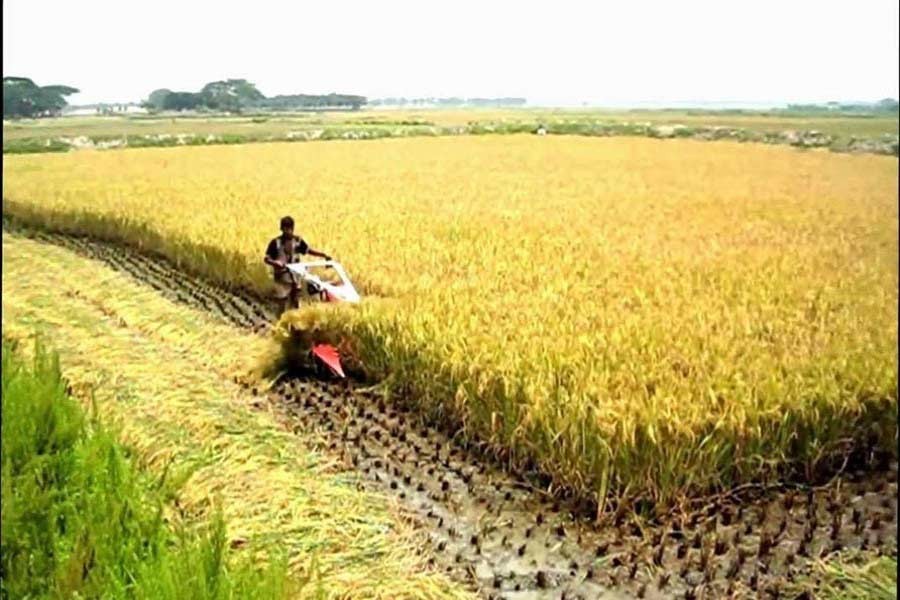In a country where agricultural lands continue to lose productivity for avoidable reasons, the news item is encouraging. According to it, a government department has swung into action to help the Bangladesh farmers enjoy the benefits of its newly invented agricultural technology and utilise the crop varieties it has tested successfully. The department is Bangladesh Agricultural Research Council (BARC) which has assigned the National Agricultural Technology Programme the task of inventing agricultural tools. An assessment meeting of the applicability of the new technical devices was held in Dhaka last week. At the event, Agriculture Minister Dr Mohammad Abdur Razzaque unveiled the cover of the relevant report. The gist of the news is farmers are set to get the new technology and seeds of crop varieties free of cost to boost agro-production.
Dwelling at length on the matter, the agriculture minister said farmers should get them at their doorsteps as early as possible. These two complementary inputs would help farmers reap the fruits of agricultural research, the minister elaborated. Apart from getting the adversity-tolerant and high-yielding types of paddy researched and found effective at Bangladesh Institute of Nuclear Agriculture, the variety of BINA Dhan in particular, farmers will be provided with fertilisers, seeds and easy-to-operate fuel-powered small implements. These locally assembled farm tools are expected to add to the speed of the country's agriculture. The machine-driven agricultural tools in the future are expected to wean the country off its age-old manual farming. Pioneered by diesel-run deep tube-wells for irrigation, Bangladesh agriculture could eventually claim itself to be stepping into the age of mechanised agriculture.
Due to farmers' centuries-old practice of using bullocks for ploughing, irrigating fields, planting saplings and harvesting manually, it takes time for them to go for technical devices. Thanks to the small, fragmented crop fields, it becomes difficult for interested farmers to deploy large tractors and harvesters-cum-winnowers for cultivation. Still, small power tillers and single winnowers could be seen in many areas of the country. The fuel-driven light and small agricultural tools coming out from the BARC's Technology Wing, experts hope, may go a long way in helping the country's transition to technology-based agriculture. Apart from innovating new-generation agricultural technologies, the BARC's nuclear agriculture wing BINA has been busy for years inventing newer staple and other crop varieties suiting Bangladesh climate.
At present farmers are being encouraged to grow additional crops like mustard in the middle of the Aman and Boro seasons. The agriculture minister has termed it a ground-breaking cropping pattern for the agrarian economy of Bangladesh. The agricultural technology programme's introduction event was informed of a lot of encouraging developments. Thanks to extensive researches, the country at present grows a number of adversity-tolerant rice varieties. The salinity-tolerant rice is considered the most dominant among them. It has lots of varieties, which could be cultivated on 2.0 million hectares of coastal regions. The agriculture minister was upbeat about the prospects of new rice varieties. Stress has to be put on buying all kinds of paddies from farmlands at reasonable prices. This will encourage farmers to grow new rice varieties. The new varieties in turn will substantially help improve the country's staple yield. This is how food security can be ensured for the country with an ever increasing population.


